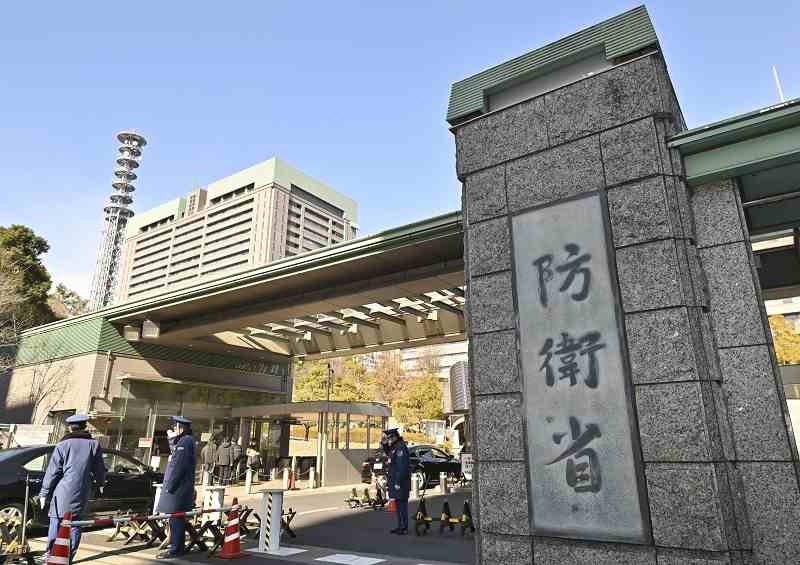Japan eyes hikes in corporate taxes to cover defense spending

The main gate of the Defense Ministry is seen in Shinjuku Ward, Tokyo.
15:52 JST, September 17, 2022
TOKYO (Jiji Press) — The government and the ruling bloc will start discussing hikes in corporate, financial income and tobacco taxes to cover a proposed increase in the country’s defense expenditures, informed sources said Friday.
Some business leaders have already been informed of rough financing plans for the spending growth, the sources told Jiji Press, adding that the ruling Liberal Democratic Party and its coalition partner, Komeito, hope to lay the groundwork before their respective tax system research commissions begin full discussions in November.
In its annual basic economic and fiscal policy guidelines, the government pledged to drastically strengthen the country’s defense capabilities within five years.
If the government is to raise defense outlays to at least 2% of the country’s gross domestic product as called for by some LDP members, it should secure about ¥5 trillion from stable revenue sources.
Currently, the effective corporate tax rate stands at 29.74%, with much of the revenue coming from large companies. Raising the rate means chiefly big businesses will shoulder the additional costs to protect the nation.
The financial income tax, levied on gains from equities and dividends, faces a so-called ¥100-million wall, or a situation in which the tax burden starts to decrease when annual income exceeds ¥100 million.
A hike in the tax will therefore be considered also from the standpoint of getting rich people take on a befitting burden.
Meanwhile, the Fiscal System Council, which advises the finance minister, has proposed that the government learn from Sweden, which is moving to raise the tobacco tax to finance its defense spending.
Discussions on raising the three taxes should face a bumpy road due to conflicting interests, critics said.
There are voices in the government and the ruling coalition calling for hikes in income and inheritance taxes, while some other LDP members advocate the idea of issuing more government bonds to fully cover the defense budget increase.




